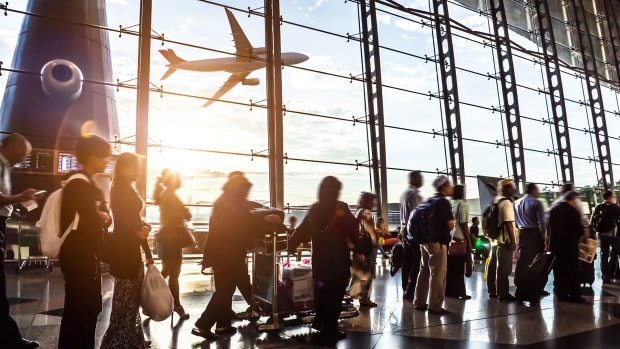The airline industry was one of the sectors of the economy hit hardest by the covid-19 pandemic.
Air travel fell 95% during April 2020, a month after the pandemic hit the U.S., and even though flights were available, with heavy amounts of safety precautions, for the rest of 2020, it was still the worst year on record for the industry.
1.8 billion passengers flew in 2020, which was a decrease of 60.2% compared to the 4.5 billion who flew in 2019, according to the International Air Transport Association, and net losses were $126.4 billion in total.
The Federal government provided financial support to the industry, in order to prevent it from going under. But now two House Democrats are calling for an investigation into the industry, in order to see exactly how that money was spent.
House Democrats Call For An Investigation Into Airlines
The Federal Government provided $54 billion in pandemic aid, and American Airlines CEO Doug Parker later said “It's not an exaggeration to say the program saved the airline industry."
Rep. Carolyn Maloney (D-N.Y.), chairwoman of the House Oversight Committee, and Rep. James Clyburn (D-S.C.), chairman of a special panel on the government's response to the pandemic, requested an investigation, in order to see how that money was spent, according to Travel Weekly.
The concern the lawmakers have is that airlines may have used the pandemic funds to encourage employees to take buyouts or early retirement offers.
"American taxpayers supported the airline industry during its darkest days at the start of the coronavirus pandemic, when nearly 75% of commercial flights were grounded. Americans deserve transparency into how airlines have used the federal funds they have received," the lawmakers said in a letter to Richard Delmar, deputy inspector general of the Treasury Department, who oversaw taxpayer relief to businesses affected by the pandemic.

Airlines Have Been Understaffed Lately
While people began feeling safe enough to begin flying again once vaccines became available, it has not been a smooth transition.
Flight cancellations and delays have become so common that Transportation Secretary Pete Buttigieg has begun haranguing the industry, telling them to provide food vouchers for customers whose flights are delayed by three hours and hotel vouchers for guests whose flights are delayed overnight, and demanding that customers get automatic refunds for canceled flights.
The delays and cancellations are due to a number of factors, from airline crew getting sick with covid to climate-change induced extreme weather conditions. But part of the problem is that there just aren’t enough people to fly the planes or provide service to customers.
Airlines such as United Airlines (UAL) and Delta (DAL) have been drastically understaffed since returning to regular schedules. The industry lost more than 400,000 workers during the pandemic. Many pilots retired, and the industry has struggled to attract enough people to replace them in a tight labor market, and has also struggled to begin training new pilots.
For example, 17,000 Southwest (LUV) employees, or 28% of its workforce, signed up for buyouts and early retirements in the summer of 2020, as airlines were looking to cut costs.
But the lawmakers are arguing this move was ultimately shortsighted, and has made air travel much more unpleasant for the American public.
They are asking the Treasury Department’s inspector general to investigate and report back by September 22, the exact ways that airlines used the taxpayer money and whether any of it was spent on reducing staff via buyouts. According to the stipulations of the Treasury Department’s Payroll Support Program Payments, “funds received by these air carriers and contractors must exclusively be used for the continuation of payment of employee wages, salaries, and benefits.”
Airlines for America, a trade group of the largest U.S. carriers, has said that the federal funds did indeed only go towards employee wages and benefits, and covered only 77% of the airlines' payroll costs.







